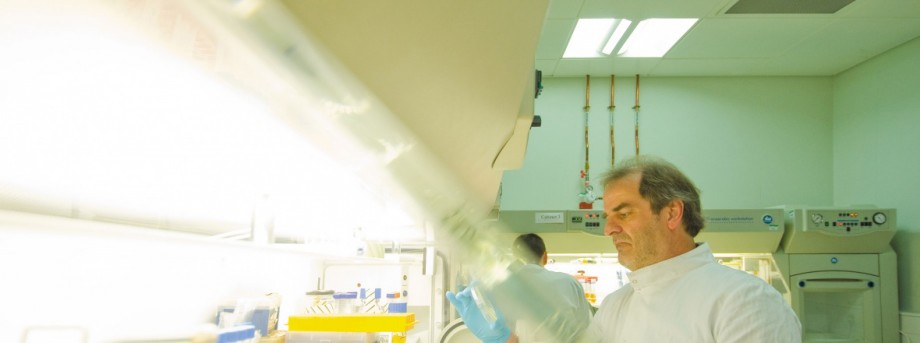The University of Nottingham
 Exchange online
Exchange online
Research Exchange
Nottingham technology transfer experts recognised for a £12m impact

Experts from The University of Nottingham’s technology transfer team have been nationally recognised by the Biotechnology and Biological Sciences Research Council (BBSRC) for their work in commercialising technologies arising from research into Clostridia.
The team from The University of Nottingham was one of just six from universities across the UK to be shortlisted for the BBSRC’s Activating Impact award.
As a result of the work of the technology transfer team at Nottingham, the University has, since 2006, obtained over £12 million of commercial and government funding for the development of new technologies and research into this area.
Bacteria have been genetically modified for several decades, but many of the most useful ‘industrial biotechnology’ bacteria are recalcitrant to such manipulation. However, the Clostridia Research Group led by Professor Nigel Minton, has developed a number of revolutionary techniques which allowed the efficient modification of the organism’s genome.
The first technology was ClosTron which was an innovative adaptation of an existing technology that enabled its deployment in clostridia. Since then, his group has developed several new proprietary methods which have led to four patent families. These patents are being exploited to lever in research funding and as the basis of licence deals with industrial biotechnology companies.
The University team filed patent applications for further developments of the clostridia based technologies. One of these was a technology known as ACE (Allele-Coupled Exchange).
ACE is a methodology which allows the scientist to produce a microbe that has been genetically manipulated to produce the biofuel butanol and potential grow on biomass. This technology was one of the major elements in the University’s bioenergy proposals which led to a £10m investment from the BBSRC in a Bioenergy Centre at the University.
Dr Celia Caulcott, Director of Innovation and Skills, BBSRC said: “This is the age of bioscience, with exciting techniques and technologies from the UK’s world class research offering enormous potential and possibilities in tackling some of the big challenges we face.
“I would like to congratulate The University of Nottingham’s technology transfer team for the great work they have done in exploiting the commercial potential of technologies arising from their research into clostridia.”
In addition to the multi-millions of pounds of funding that the University team has secured from commercial and government sources, four patents have been filed for the genetic manipulation of clostridia, 24 commercial licences have been granted and over 250 material transfer agreements have been drafted.
Dr Susan Huxtable, Director of Intellectual Property (IP) and Commercialisation at the University, commented: “The excellent work that the technology transfer team has done with Professor Minton and his technologies is a great example of the support that we offer to academic staff at the University, as well as to businesses wanting to license innovative new ideas.
“The team has managed his patent portfolio along with his research and studentship contracts and the many requests for his materials. This has ensured that the income from IP has been maximised to get the very best value for the University and from BBSRC’s investment in Professor Minton’s work.”
Professor Minton’s technologies have received huge interest from academic groups worldwide, as well as interest from numerous companies in a diverse range of sectors. The University’s technology transfer office also manages all requests from academic or commercial groups that want to access Professor Minton’s patents and receive materials (plasmids).
Professor Minton added: “I am extremely grateful for the invaluable professional service that the technology transfer office has provided to me, my team and the technologies for genetically modifying Clostridium that we have developed over the years.
“Due to this, we are now in a very strong position to commercially exploit future applications from the technologies in areas such as sustainable biofuel production, fine chemicals and novel therapeutics in fields such as cancer and microbial-induced diseases.”
Tags: ACE, Actvating Impact. ClosTron, BBSRC, bioscience, industrial biotechnology, technology transfer
One Comment
Leave a Reply
Other News

Top prize for quantum physicist
A University of Nottingham physicist has won a prestigious medal from the Institute of Physics for […]

Zero carbon HOUSE designed and built by students comes home
Design and construct a low cost, zero carbon, family starter home, transport it to Spain, build […]
April 22nd, 2013 at 12:44 am
Cheryl
Very exciting to read. I truly believe that we can find cures for all of our diseases, and what great work your team has accomplished. I wish you all the best in your future research.